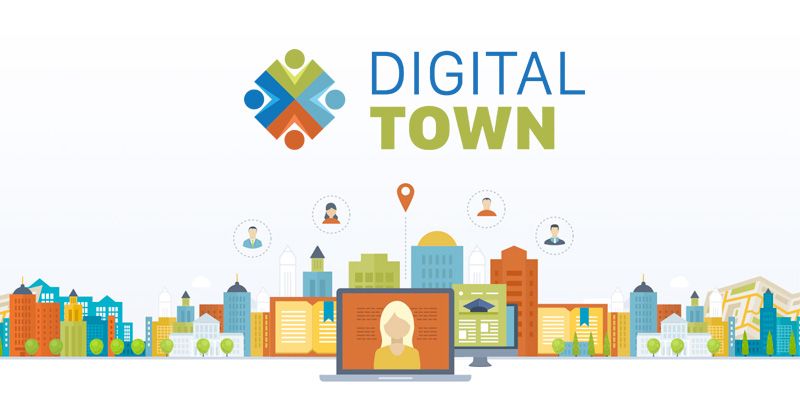DigitalTown, a provider of smart city portal solutions, announced the launch of a Blockchain-based Distributed Ledger for managing shared ownership of each city in its global network of city portals. The unprecedented move heralds a new era for empowering public-private partnership in the development of thriving local economies.
 |
|
(Image: DigitalTown) |
DigitalTown operates a global network of more than 20,000 city portals such as Nashville.city that make it easy for residents and visitors to search, share and shop local. Each city portal is equipped with SmartSearch, a powerful local search engine that provides locally relevant information tailored to personal preferences. Registered merchants are provided with an online storefront with which they can sell locally and globally, paying only transaction fees. All legal residents are provided with a free SmartWallet that includes a verified online identity with which they can securely engage and transact with services from both the public and private sector.
For cities where the municipality, or its proxy itself does not license the platform for their city, each resident of a city is to be allocated a fractional ownership unit of the city platform. The units may be claimed during a defined subscription period, after which the distributed units become freely traded and accessible to both residents and non-residents.
Rob Monster, CEO of DigitalTown, commented on the launch, “Since the advent of online search, local and regional institutions such as municipalities, chambers of commerce, convention and visitor bureaus, destination marketing organizations, trade associations, as well as other local institutions have been competing with each other for ranking in search engines. In many cases, they have also experimented with buy local initiatives using directories of local merchants but with no ability to transact. These uncoordinated digital efforts have often resulted in an inconsistent user experience causing both locals and visitors to rely on non-local online tools to find out where to go, what to do, as well as where to stay, shop or eat. Local ownership of a unified city platform provides the organizing framework to regain control over the online economy, achieve self-sustaining economic development, and equip local stakeholders to win in the Digital Age.”





 CN
TW
EN
CN
TW
EN






